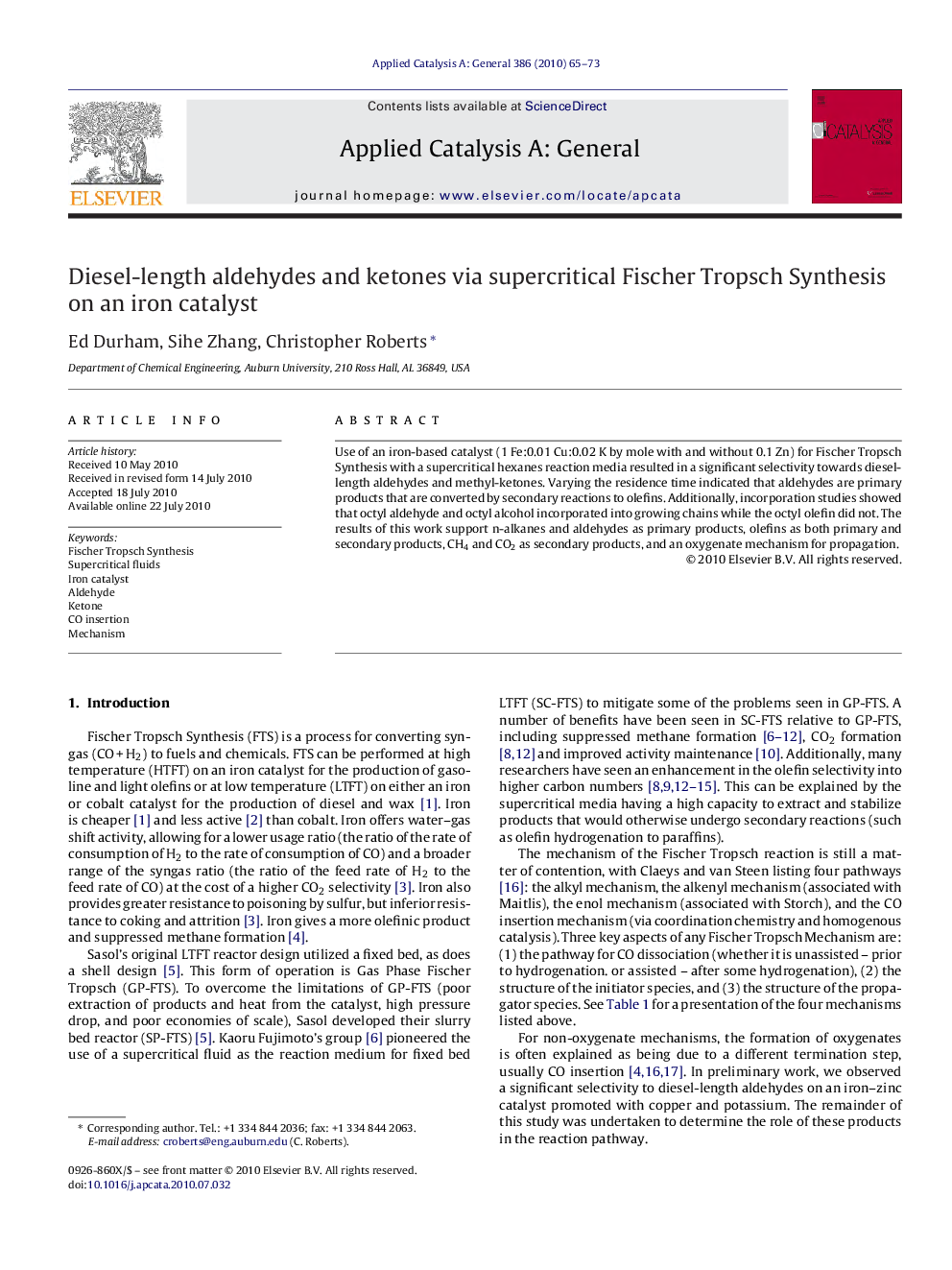| Article ID | Journal | Published Year | Pages | File Type |
|---|---|---|---|---|
| 41908 | Applied Catalysis A: General | 2010 | 9 Pages |
Use of an iron-based catalyst (1 Fe:0.01 Cu:0.02 K by mole with and without 0.1 Zn) for Fischer Tropsch Synthesis with a supercritical hexanes reaction media resulted in a significant selectivity towards diesel-length aldehydes and methyl-ketones. Varying the residence time indicated that aldehydes are primary products that are converted by secondary reactions to olefins. Additionally, incorporation studies showed that octyl aldehyde and octyl alcohol incorporated into growing chains while the octyl olefin did not. The results of this work support n-alkanes and aldehydes as primary products, olefins as both primary and secondary products, CH4 and CO2 as secondary products, and an oxygenate mechanism for propagation.
Graphical abstractFigure optionsDownload full-size imageDownload high-quality image (97 K)Download as PowerPoint slideResearch highlights▶ SC-FTS on an Fe catalyst gave a high selectivity to diesel-length aldehydes. ▶ Low CO conversion enhances aldehyde selectivity and decreases olefin selectivity. ▶ These findings support an oxygenate mechanism for the FTS reaction on iron.
